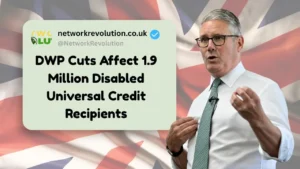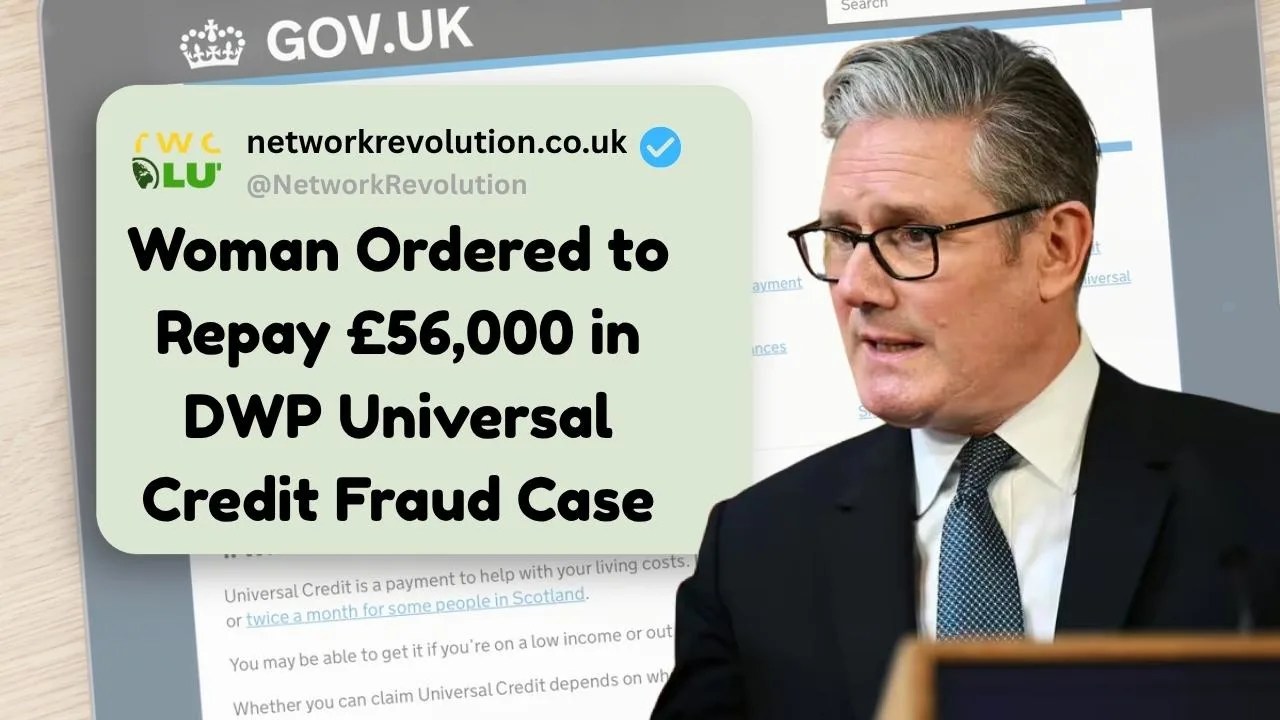The Department for Work and Pensions (DWP) has revealed a striking case of benefit fraud involving Sumira Amin, a 36-year-old mother who claimed over £56,000 in Universal Credit while secretly owning her own home.

Between July 2019 and October 2022, Amin falsely stated she lived in privately rented accommodation and had no property, savings, or investments. However, DWP investigators later found her name on a Land Registry mortgage record, confirming she co-owned a property purchased in 2018.
“She was paid Universal Credit on the basis she was a single parent living in privately rented accommodation,” said prosecutor Amy Edwards, adding that Amin’s actions “deprived public funds and genuine claimants of rightful support.”
Also Read DWP to Launch Bank Account Checks from April 2026
DWP to Launch Bank Account Checks from April 2026
The case was uncovered using data-matching technology, which cross-references Land Registry, banking, and employment data with benefit claims to flag inconsistencies.

Defence and Sentencing
During her court hearing, Amin’s defence lawyer, Simon Leong, argued that she was pressured into the situation by the father of her children, describing him as “not a supportive gentleman.”
Judge Paul Lawton accepted that Amin was not the “driving force” behind the fraud, noting that her actions were influenced by coercion and difficult personal circumstances.

“You were pushed into these claims and need help more than punishment,” said Judge Lawton.

Amin avoided prison but was sentenced to community service under supervision and ordered to repay the £56,124 she fraudulently received.
How the DWP Detects Benefit Fraud?
The DWP has invested heavily in advanced fraud detection technology since 2024, enhancing its ability to identify fraud through digital cross-checks.
| Method | What It Checks |
|---|---|
| Land Registry Match | Detects undeclared property ownership |
| HMRC Records | Identifies unreported income or employment |
| Banking Data | Tracks unexplained financial deposits |
| Local Council Records | Confirms residency and rent claims |
| Credit Agency Links | Finds discrepancies in address or asset details |
A DWP spokesperson said: “Anyone who deliberately provides false information to claim benefits is committing fraud. We have zero tolerance for abuse of the welfare system.”
What Happens If You’ve Been Overpaid?
Overpayments can happen for several reasons — not all of them intentional. If you receive an overpayment notice from the DWP, here’s what to do:
- Read the letter carefully: Sometimes overpayments occur due to administrative errors.
- Check the figures: Compare them against your actual claim dates and payments.
- Request a Mandatory Reconsideration: Request a mandatory reconsideration within 30 days if you believe the decision is wrong.
- Inform your landlord: If housing costs were part of the claim — they may also receive notice.
- Be prepared to repay: If the DWP determines the overpayment was your fault.
Failure to respond may result in automatic deductions from future Universal Credit payments or debt collection proceedings.
DWP’s 2025 Fraud Crackdown
The DWP’s Fraud Prevention Taskforce, expanded in October 2025, now collaborates directly with HMRC, banks, and the Home Office to uncover benefit fraud more efficiently.
The initiative targets:
- Multiple benefit claims from one address
- Unreported income or new employment
- Undeclared property or capital assets
The taskforce forms part of the government’s “Fighting Fraud in the Welfare System” plan, which aims to recover £2.6 billion in overpaid benefits by 2027.
“Data-matching technology is revolutionising our ability to protect taxpayer money,” said Rachel Adams, DWP Head of Compliance. “Genuine claimants will benefit from faster, fairer systems, while fraudsters will be caught more quickly.”
Lessons for Claimants
The DWP urges claimants to report any changes in circumstances immediately, including:
- Moving to a new property
- Entering or leaving a relationship
- Starting or stopping work
- Receiving savings, inheritance, or investments
Failing to do so could lead to criminal prosecution and long-term loss of benefits.
Expert Commentary
“This case shows how DWP systems are closing the gaps fraudsters used to exploit,” said Matthew Keane, a welfare policy analyst. “Cross-referencing financial and property data is a game-changer for benefit integrity.”
“For honest claimants, the message is simple: transparency keeps you safe from penalties,” added Sarah McNeil, spokesperson for Citizens Advice UK.
FAQs
What happens if you’re caught committing benefit fraud?
You may face repayment orders, fines, loss of benefits, or criminal prosecution. Severe cases can lead to imprisonment.
How does the DWP detect undeclared assets?
The department uses AI-powered data-matching that checks information from the Land Registry, banks, and HMRC records.
Can I appeal a DWP overpayment?
Yes. File a Mandatory Reconsideration within one month of receiving the notice.
Do unintentional errors count as fraud?
If the DWP decides you acted negligently — even unintentionally — you may still need to repay the funds.
How can I avoid overpayment issues?
Always update the DWP if your income, housing, or relationship status changes. Keep all benefit letters and receipts for your records.

